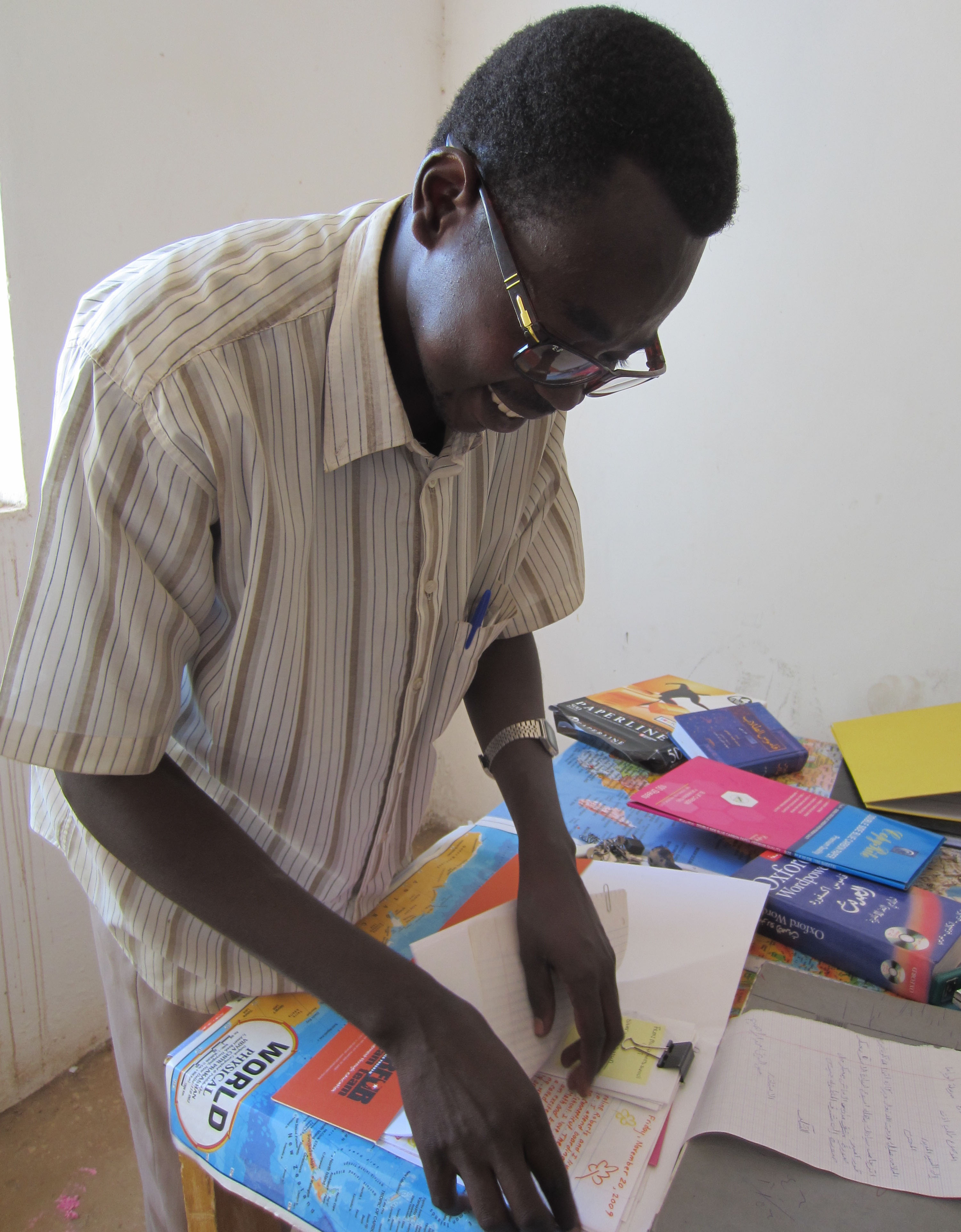
DJABAL REFUGEE CAMP, Chad — Today was my last day in Djabal refugee camp. After anticipating this visit for so long, I'm sad to leave eastern Chad and the people I’ve met. But after spending more than a week visiting Djabal and Goz Amer refugee camps, I'm returning to D.C. even more determined to increase support for refugee education here.
Djabal and Goz Amer are the southernmost of 12 Darfuri refugee camps in eastern Chad, a 2-hour drive apart from each other, and differ in many ways- the layout, landscape, atmosphere, the ethnic groups represented, and languages spoken. However, the ideas I heard, especially the conviction that education is essential for a peaceful future in Darfur, were strikingly similar between the two camps. The best example of this similarity is the shared attitude of two teachers, Abdulaziz in Djabal and Umda Tarbosh in Goz Amer. These two men have never spoken to each other and come from very different backgrounds in Darfur, but both believe so strongly in the power of education and potential of Darfuri children. On Sunday Umda Tarbosh told me, "The support by Americans is something that the students and teachers cannot forget—it will go into Darfuri history… Education is important for rebuilding Darfur and reducing ignorance."
In Djabal the following day, Abdulaziz said, "We hope that the little generation will get a good education by your help (Americans and DDT Sister Schools) so we can drive out ignorance in the future."
Both Umda Tarbosh and Abdulaziz are working hard to provide the best education the can for children in their camps, and their determination is indicative of the resilience and hope still held by the hundreds of thousands of displaced people here in eastern Chad: for a peaceful and prosperous Darfur. But given the dramatic shortage of resources, these dedicated teachers know they need assistance. Over and over again I heard refugees use the term "open prison" to describe the camps and feeling that they're stuck and dependent on international aid until there is a political solution for Darfur. Until that political solution is reached, the international community must fill the gaps in need, especially education, so that when the refugees can return home, they are ready to rebuild a peaceful and prosperous Darfur.
Visiting the two camps to see what the Darfur Dream Team Sister Schools Program has done for education in Djabal and what lies ahead with our 2012 plans for Goz Amer has been both exhausting and invigorating. While I’m sorry to see the inspiring trip come to an end, I'm excited to be heading back to the United States to share my experience with DDT Sister Schools and other Americans, and I am hopeful about the impact our collective support will have on refugee education in Djabal and Goz Amer.
Check out the new videos from the trip, and thanks to the iACT team for their excellent work documenting our visit. Here’s one showing the drive to Djabal camp and featuring Abdulaziz talking about the need for education in the camps. This clip also shows some teachers learning about the new CommKit equipment, which allow Darfuri students to exchange photos, videos, and messages with their American peers.
Photo: Teacher Abdulaziz sorts through letters from American students in Djabal camp (iACT/Darfur Dream Team)

